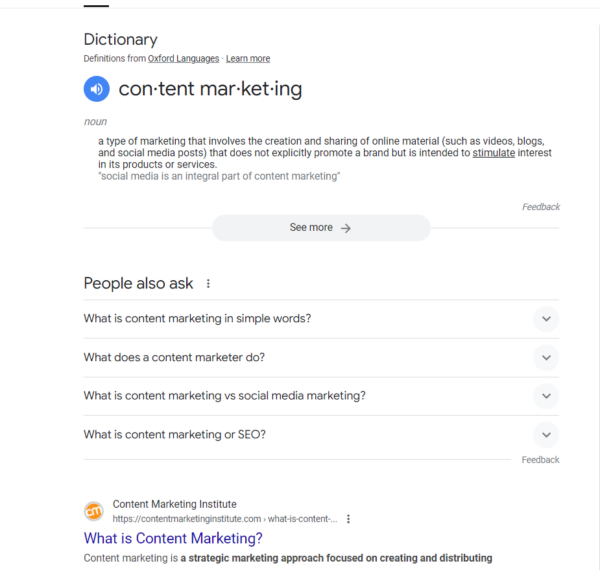You have 173 days left to reach your marketing goals this year.
Well, let’s be honest. Nobody really works or does anything after Dec. 20. And if we’re really honest, December itself is a wash, and so is the last week of November with the U.S. Thanksgiving celebration.
So, you really have 133 days to reach your marketing goals.
How’s it going?
If your goals are related to organic search, you’ve faced a challenging year. Search continues to disrupt the work of content and marketing teams. From new algorithms to false starts and imperfect paths to AI-generated overviews, it’s a jumbled mess.
We turned to CMI’s chief strategy advisor, Robert Rose, to get his help in untangling all the news and to help you head more purposefully into the next 133 days. Watch or read on for his take:
Analyzing searcher behavior
SparkToro released its 2024 Zero-Click Search Study this month, and you might be surprised to learn just how much traffic isn’t getting generated by search these days.
Zero-click search happens when a searcher gets their answer on the results page without having to click a link. For example, if a searcher asks, “What is the address of the White House?” The address — 1600 Pennsylvania Avenue — appears on the results page, so the searcher never visits www.WhiteHouse.gov.
Rand Fishkin and his team at SparkToro examined millions and millions of Google searches all over the world using what they call a multimillion device clickstream panel. They didn’t look at keywords, which wouldn’t have been terribly helpful anyway. Instead, they looked at what Americans and Europeans do after they conduct a search.
What did they find?
More than one-third (37%) of people end their search without clicking. Of the remaining people, 21% conduct another search and 41% click on something.
Of those who click, 70% go to an organic result, and 28.5% end up on another Alphabet (i.e., Google) property, such as YouTube, Maps, Images, or News. And 1% click on a paid ad.
While nuances exist as they relate to mobile and voice search, those numbers are interesting. For example, almost 30% of clicks go to a Google property where Alphabet can further monetize the searchers’ actions. That doesn’t even count any portion of the 21% who ultimately end up on a Google property when they conduct another search because they didn’t get the right, best, or most satisfying answer the first time.
However, the real punch line is this: Only 360 of every 1,000 U.S. Google searches go to the open web.
The research concludes that Google is NOT losing in search despite what many seem to think. Google is doing very well in translating more searches with more avenues to keep users in the Google ecosystem.
Evolve your Google strategy
What’s the takeaway?
People are overreacting with their claims that AI Overviews (the AI-generated summary at the top of results) and the quality of Google search results are failing.
The research clearly indicates that marketers can no longer think of Google search as a silo. In a more perfect world, you would have matching content on Google’s other properties — YouTube, News, Maps, etc. Every blog post created should be accompanied by a video, a news item, etc.
But the study’s bigger lesson is that marketers must look at the Google ecosystem to understand where they have the best chance of being an off-ramp for people looking for things. It’s most likely not a link to your website or blog, at least initially.
You could wax philosophically about the technically complex zero-search results. But the simplest way to address it is to ask: “How do we become the answer that Google uses for that particular query?”
I can tell you from experience about the benefits of doing that. For a few years, when searchers asked, “What is content marketing,” a page from the Content Marketing Institute popped up. In recent years, Google changed that. CMI remains the No. 1 organic answer in the query, but above it is a “dictionary box” with a third-party definition that I don’t think is quite right.
You must understand that the search game is rigged. Google optimizes for Google, not your brand.

Even if you hate the game, you must play it. But how you play it grows increasingly complex. Take solace in the fact that Google seems to reward good, high-quality, and informative content. Make that what you continue creating for the remainder of the 133 days minus six minutes or so left in the year.
HANDPICKED RELATED CONTENT:
Cover image by Joseph Kalinowski/Content Marketing Institute
